Grahame Webber laughs when asked whether Waipā is a better place because of his seven terms on the district council.
“Bloody hell, I wasted 21 years if it’s not,” he says.
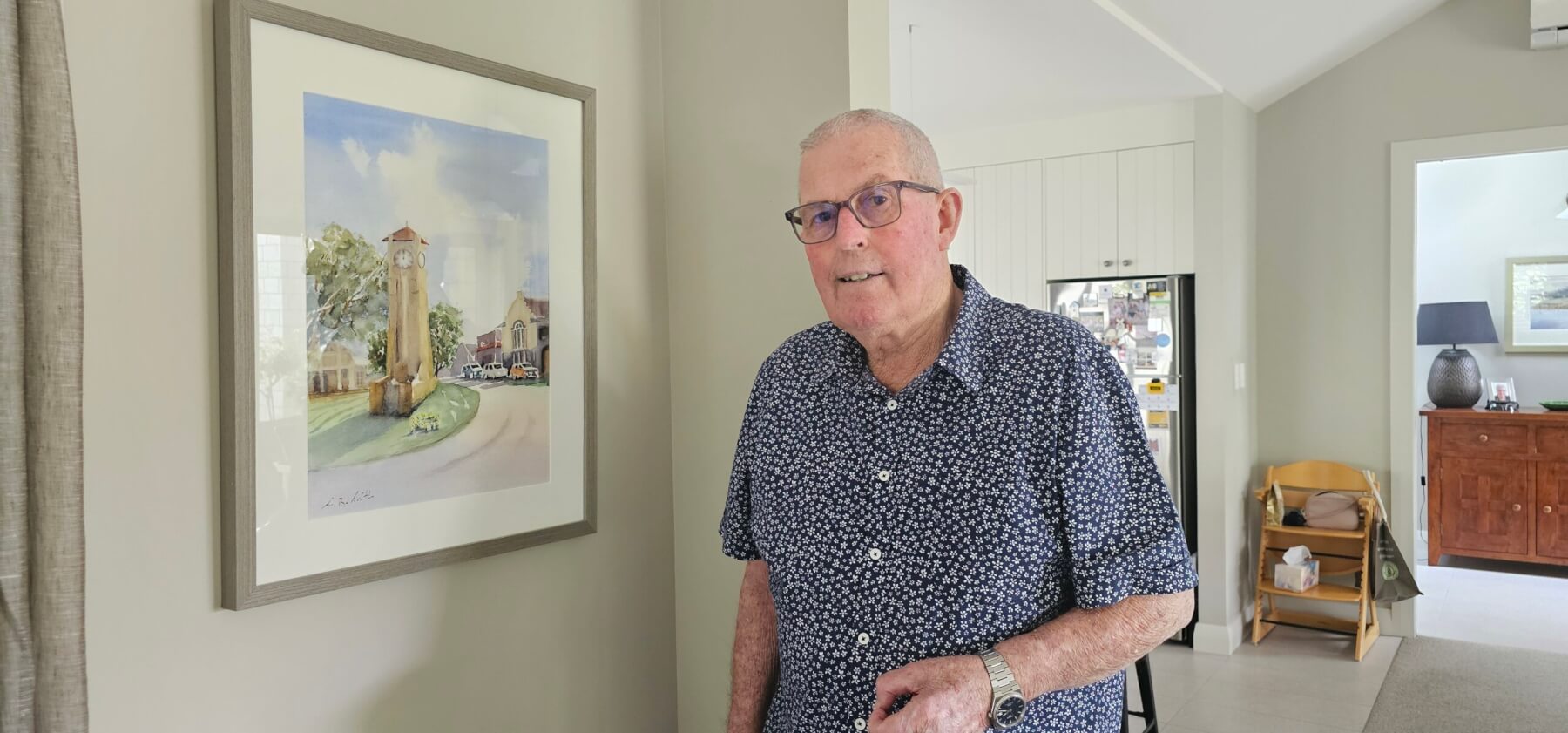
Favourite spot: Grahame Webber with the Gavin Smith watercolour of the Clock Tower. Photo: Mary Anne Gill.
Webber, a former deputy mayor and Cambridge Community Board chair, was honoured for his services to local government and farming governance with a King’s Service Medal in the New Year’s Honours.
Describing himself as a “can do, will do cow cocky”, the 76-year-old has contributed to farming and local government since he was a teenage member of the Young Farmers Club in Te Awamutu.
Stints in various Federated Farmers positions and as a director of the now defunct New Zealand Dairy Group followed before his election to the Cambridge Community Board in 1998 and Waipā council three years later.
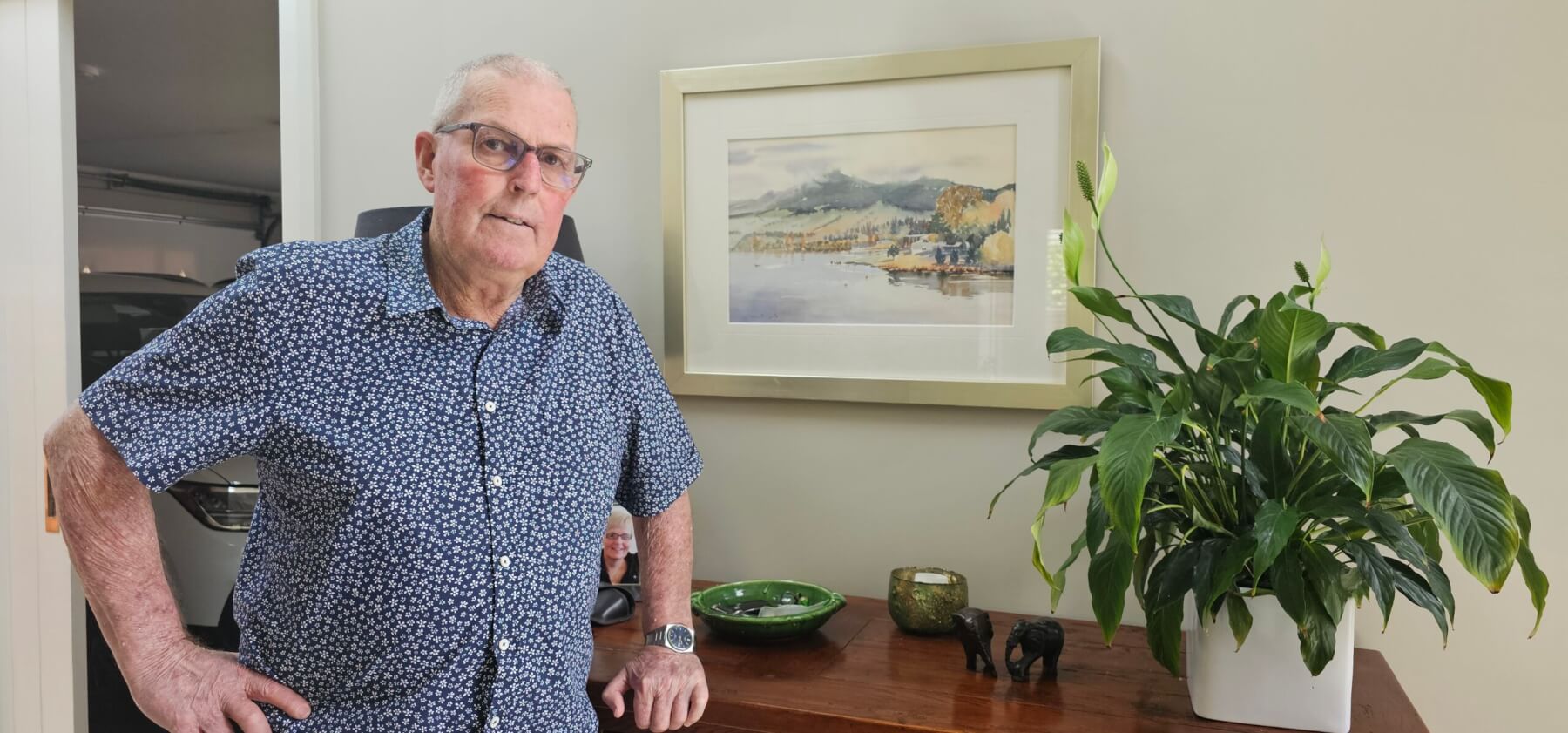
Karāpiro, Jewel in the Crown: Grahame Webber with the Gavin Smith wa-tercolour presented to him on his retirement. Photo: Mary Anne Gill.
He retired from the council just over two years ago after he revealed he was battling myeloma, a cancer of plasma cells that usually arises in the bone marrow.
Webber is no longer having chemotherapy but takes pills daily which have various side effects. He is philosophical: “It’s one of those diseases that’s going to get you. It’s in the blood.”
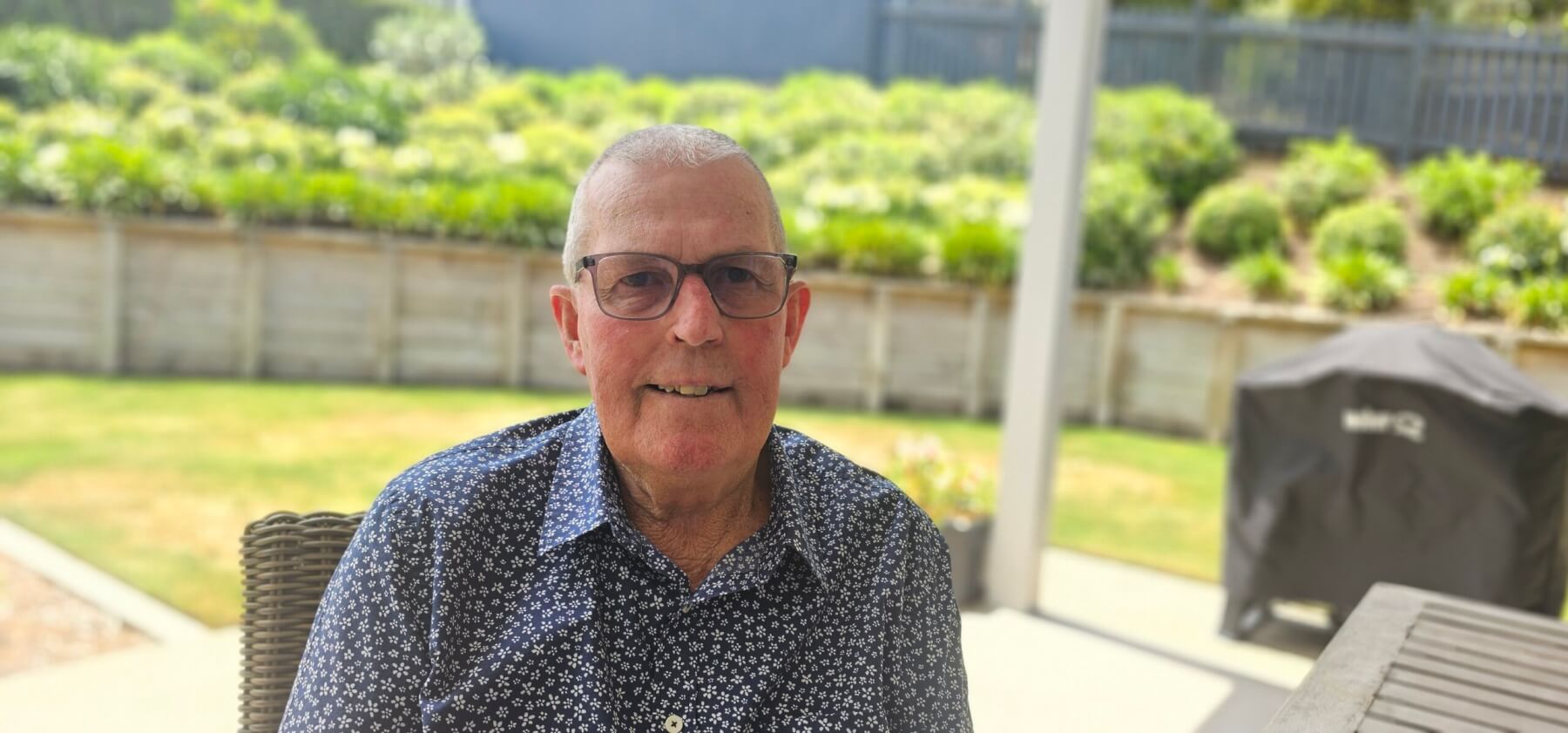
Grahame Webber with his Weber barbecue in the background which he reckons should be renamed. Photo: Mary Anne Gill.
When his parents met, his father was a policeman in Te Aroha and his mother a hairdressing apprentice from Taranaki. They settled in Auckland where Webber was born, the first of six children.
“They thought a rural place was the place to be rather than be stuck in Mt Albert.”
Webber firstly attended Tokoroa Central School – their farm was near the town – and then Te Awamutu College when the family moved to a dairy farm in Pokuru.
Teachers always told him he “must try harder” so he left school to go farming and ended up share milking on his parents’ farm with his wife Jenny, who he met in mid-August 1972, and married in May the following year “when the cows were dry”.
The couple have two children – Kate, a senior account manager at HMC Consultancy and Richard, who runs the family farm near Tihoi – and five grandchildren.
Those links to Te Awamutu – despite not living there for 57 years – marked him as a councillor able to straddle that Cambridge v Te Awamutu divide.
“The years that I spent at Te Awamutu were invaluable. I didn’t want a them and us.”
Local government provided him with several highlights starting with the establishment of rural tours when he was first on the community board.
“People like you to meet them on their own patch.”
In 2001, he beat a crowded field, including incumbent Ron Cooper, for the Maungatautari ward and switched allegiances to Cambridge for three terms when he and Jenny moved into town.
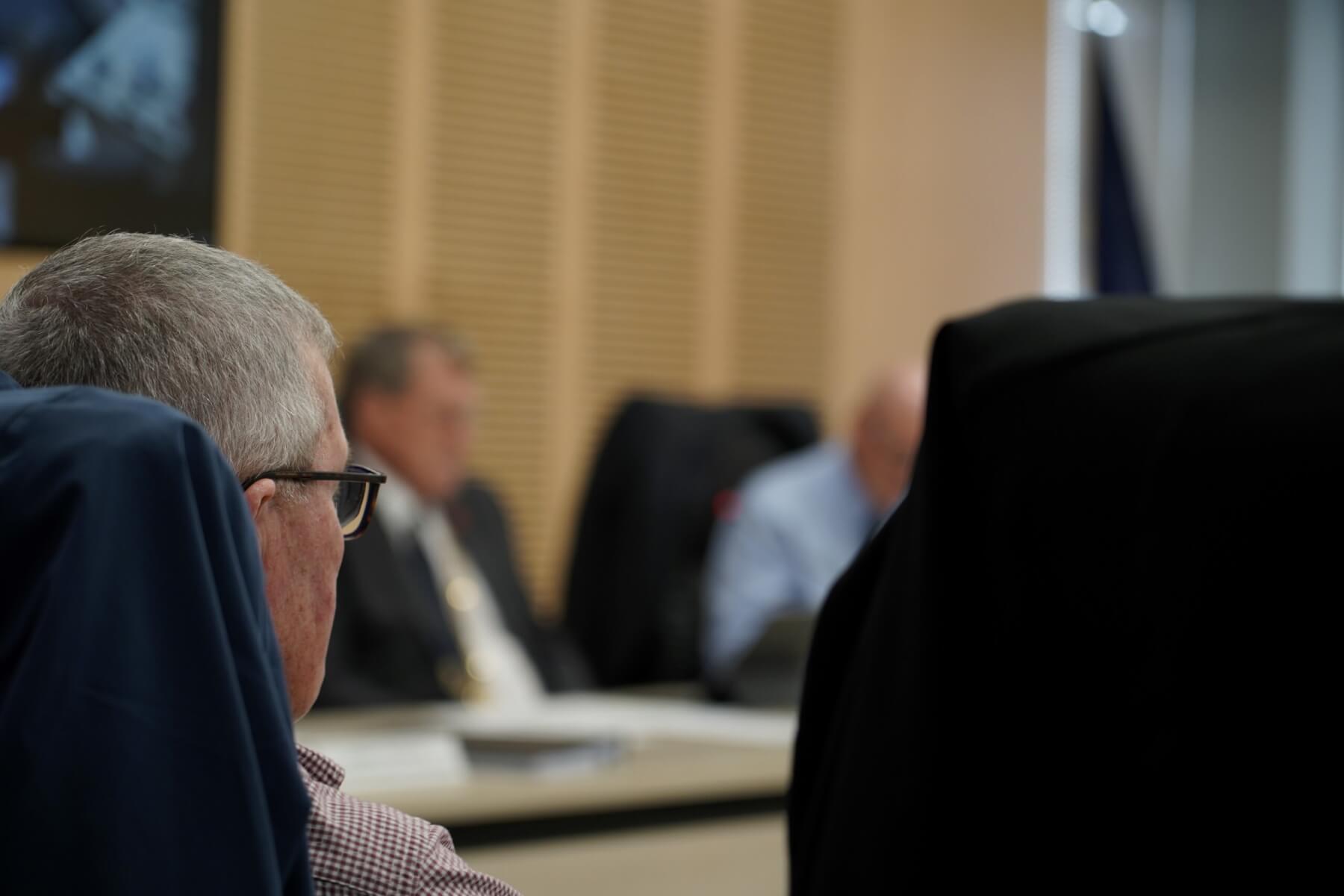
Keeping an eye out: Grahame Webber, foreground, was deputy to mayor Jim Mylchreest (background). Photo: Benjamin Wilson.
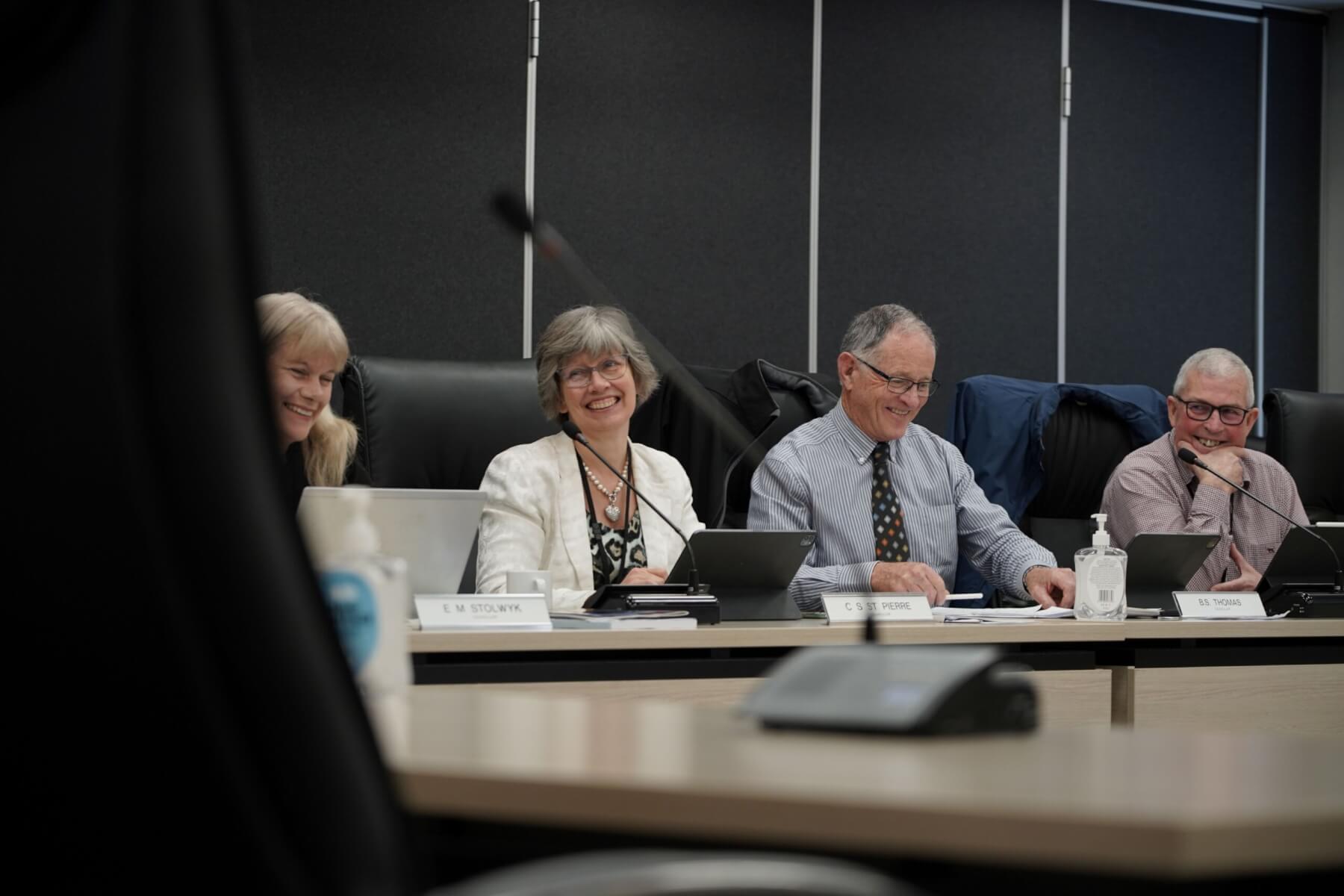
Fun times: From left Liz Stolwyk, Clare St Pierre, Bruce Thomas and Grahame Webber. Photo: Benjamin Wilson.
He was mayor Jim Mylchreest’s deputy and chaired several committees, but his favourite was Service Delivery where he kept well informed.
“I really enjoyed chairing that – it’s roading, water and sewage so if we had a project going up like a new water system at Karāpiro or the sewage works or whatever, I would go out with the managers and get wised up.
“So, when it came to the meetings, I would know what the person was talking about because I had been out there and seen the problem or know the issue.
“I knew every bridge. I used to go every weekend. I would do a part of my ward and take notes and say, ‘you need to do this, there’s a pothole there. The bridge needs repair’.
“They must have thought I was bloody nuts in the roading department, but that was just an honest person seeing some of the things that a rural person would be looking at,” said Webber.
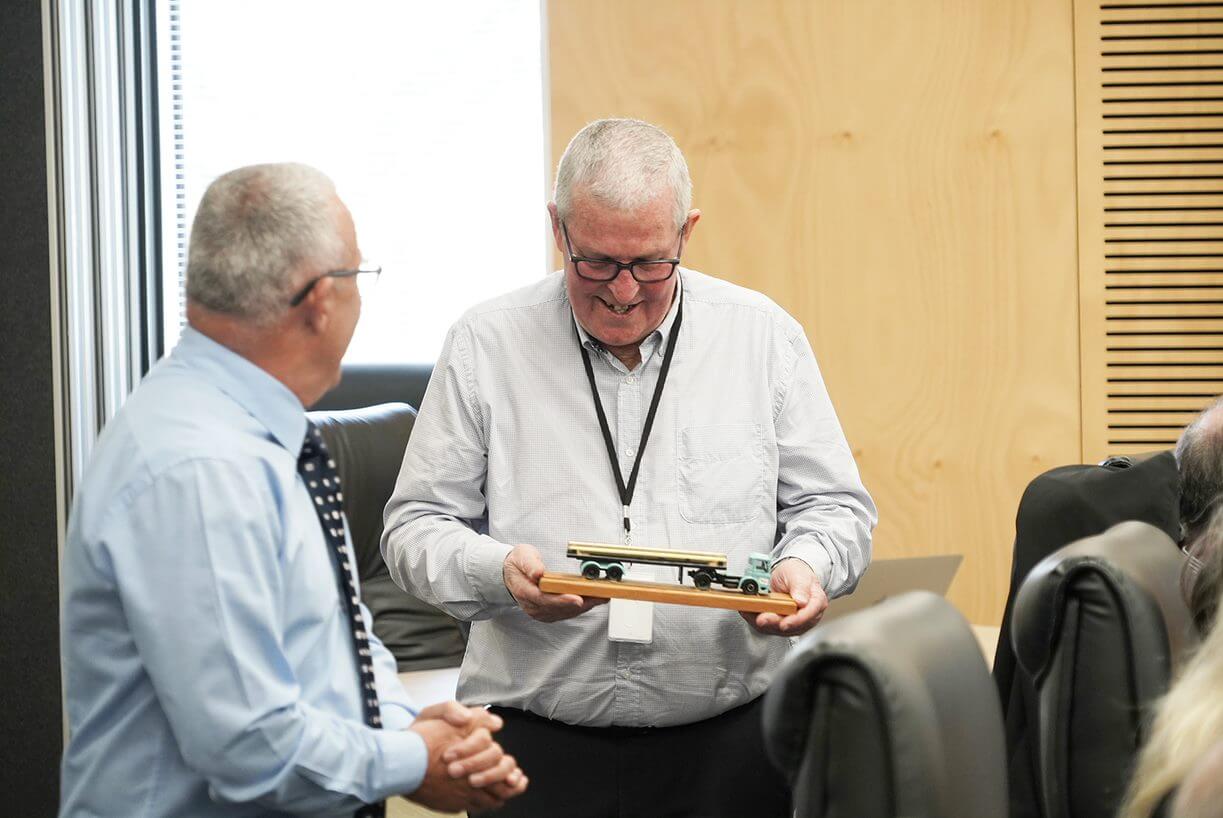
Out-going councillor Grahame Webber is presented with a water truck model by then Water Services manager Martin Mould.
Staff did not think he was crazy – in fact the water services team gave him a model water truck when he retired saying he had been the best chair they had dealt with.
See: A model councillor
Another highlight was the Sister City relationships with Le Quesnoy in France and Bihoro in Japan. He travelled on council business to Bihoro four times and Le Quesnoy once and paid for each trip himself.
His council business claims – for example, mileage to and from his home, were generally nil also.
Webber lives in Le Quesnoy Place and “it’s deliberate”, he says bringing out the limited edition items he bought in France which hold pride of place on the mantle in their house.
Also on display are two watercolours by Te Awamutu artist Gavin Smith depicting Karāpiro and the Town Clock, the latter being his favourite spot in Cambridge.
The email telling him about his nomination for an honour came in October to their joint email account.
“That’s another bloody spam, just give it a flick,” he told Jenny.
“I felt a bit non deserving to be honest. There’s no expectation you’re going to get something like that, but at the same time, unbelievably grateful that someone has taken that opportunity to nominate me.”
He has some advice to anyone considering standing for council later this year.
“The first three years you’re going to have to breathe through your nose and keep your mouth shut. There’s so much to learn.”
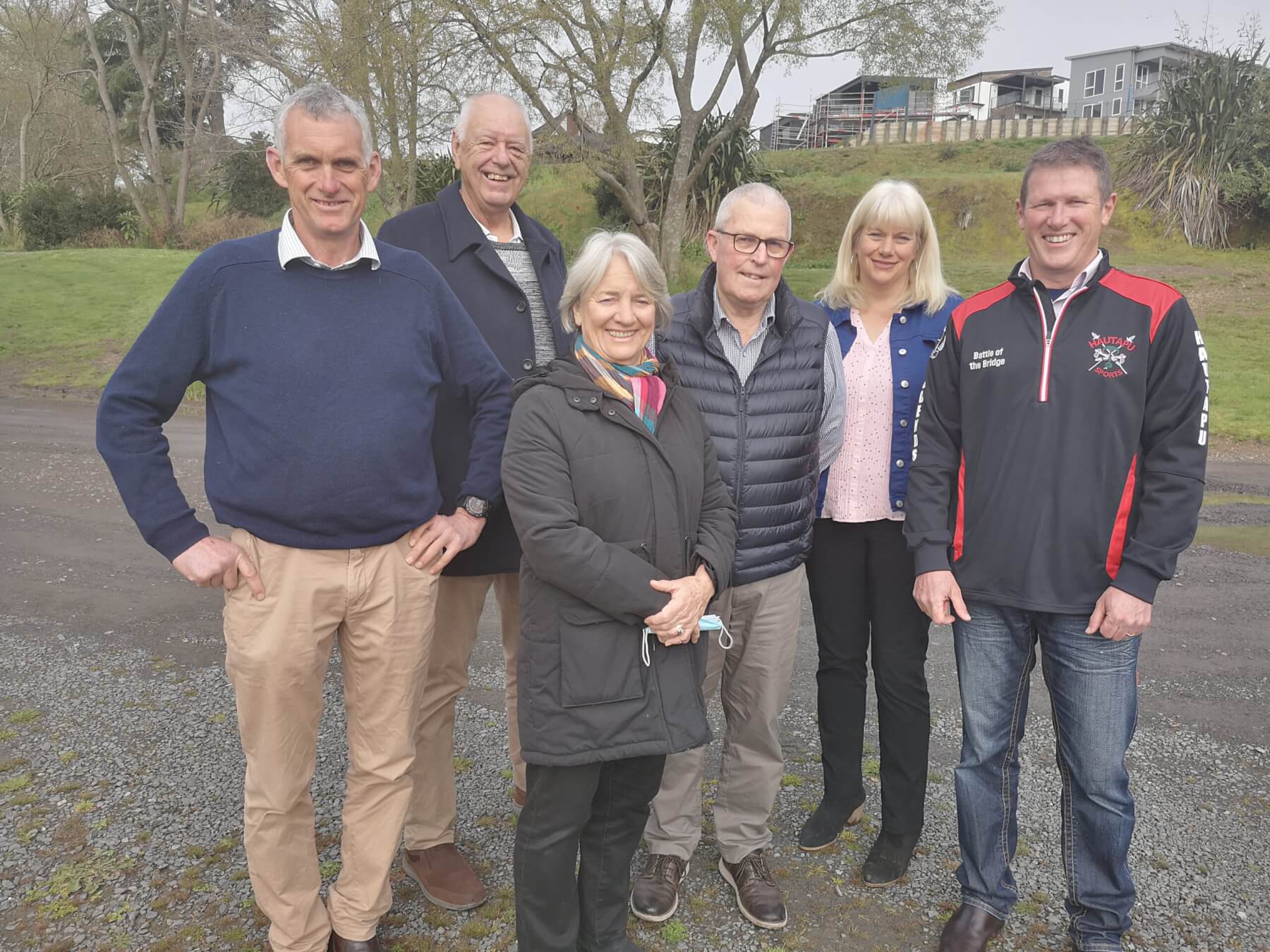
Grahame Webber with his fellow Waipa council Cambridge colleagues, from left: Phil Coles, Roger Gordon, Elwyn Andre-Wiltens, Webber, Liz Stolwyk, Mike Pettit. Photo: Mary Anne Gill.
And he also has a message for central government.
“Local government gets hounded by central government. We can’t do this; we’re not allowed to do that. They should bloody well leave us alone.”
People still approach him in the supermarket and Webber shares his views, offers advice or puts them in touch with someone at the council. He thinks the third Cambridge bridge should go next to the High Level Bridge “it’s the skinniest part of the (river) gorge”, the Cambridge Connections ‘Blue Blob’ fiasco would never have happened on his watch and people should stop saying there would be 400 trucks a day heading in and out of town if the quarry in Newcombe Rd goes ahead.
“It’s a beat up,” he says.
Opposition to progress in Cambridge, such as the Velodrome and Karāpiro, the district’s “jewel in the crown”, and even The Warehouse 25 years ago have all been proven wrong.
“There will be 150 towns in New Zealand that would give their best eye for the crowds we have in Cambridge as a destination in the weekends and we have no empty shops.”
And to prove there is still a politician in him, he points to the Waipā decision to go into a water entity without Hamilton City Council citing water meters as a good reason.
“That’s their (Hamilton) biggest stuff up – they didn’t put them in, we did. We took the water and made it a separate entity. We were ahead of the eight ball, not them.”
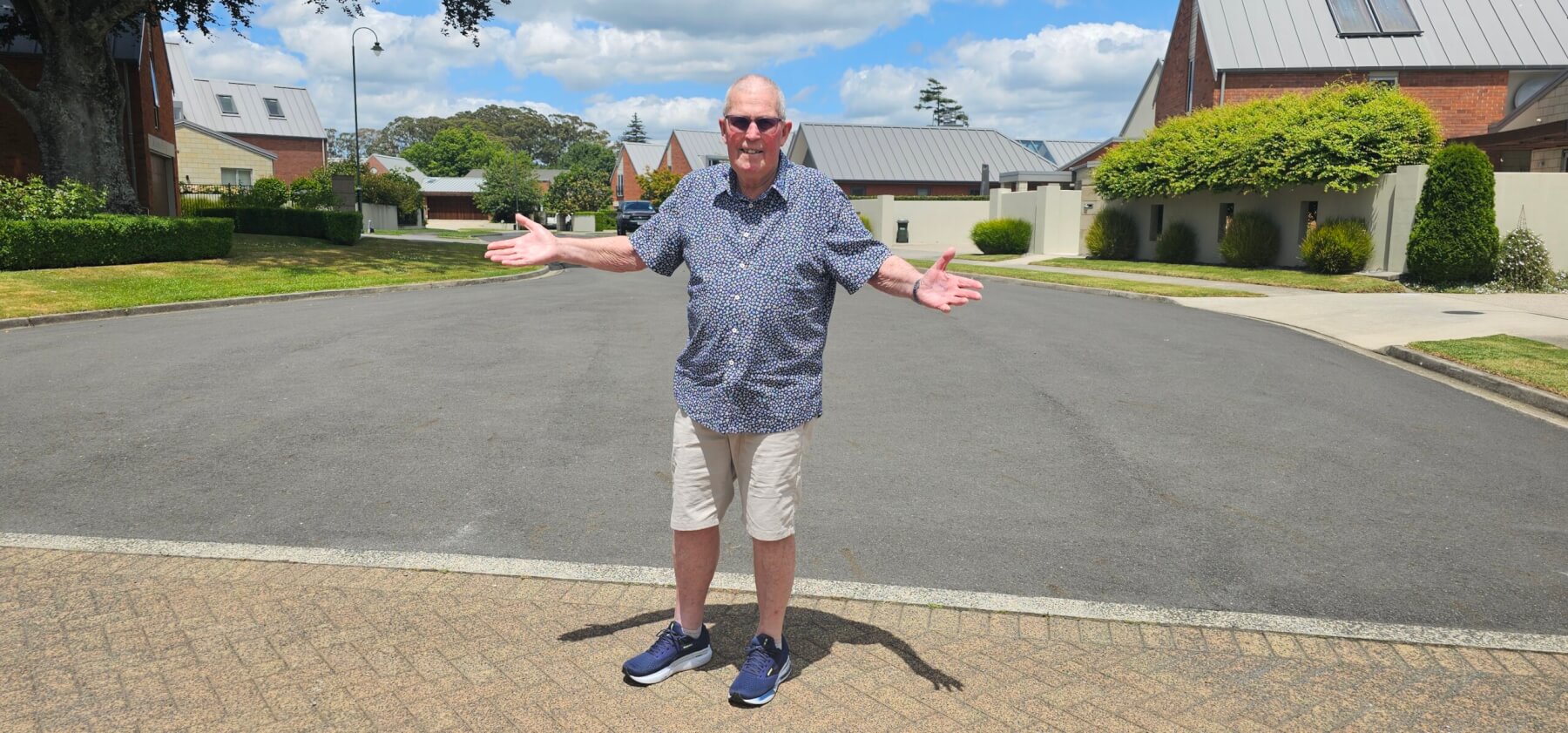
Grahame Webber is so committed to the Sister City relationship with Le Quesnoy, he moved into the cul-de-sac named after the French town. Photo: Mary Anne Gill.








